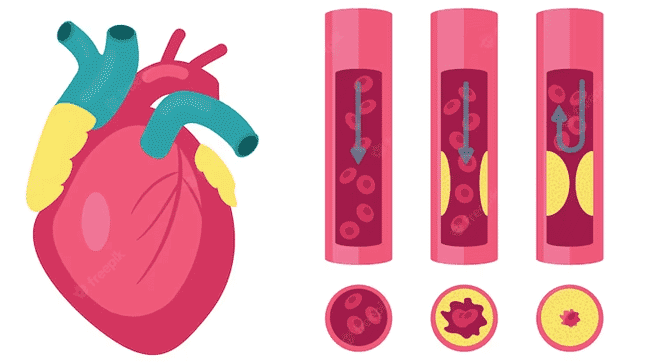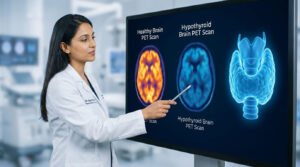Do you know that our body makes Cholesterol? Isn’t it weird because we have been always told for decades that Cholesterol comes from the high intake of oily foods and fats like ghee, deep-fried meat etc. Cholesterol is essential for various metabolic processes and to maintain good health. In this article, I will give a basic overview of
- Cholesterol test
- Why Do You Need Lipid Panel Test and what all Tests are included in it?
- Types of Lipid Tests
- Different Levels of lipid profile test and its Risk factors Summary
- What Makes HealthcareOnTime a Trusted Choice for Lipid Panel Test?
Understanding Lipid Profile / Cholesterol Test: A Basic Overview
A lipid Profile measures the amount of fat in your blood. It also checks for high levels of triglycerides (a type of fat) and low levels of HDL cholesterol (good cholesterol). It helps build cell membranes and hormones, and it also plays a role in brain development. These numbers can indicate whether you’re at increased risk for cardiovascular disease.
Another common names for a lipid panel are as below:
- Lipid profile.
- Lipid test.
- Lipid profile test
- Cholesterol panel.
- Coronary risk panel.
- Lipid panel test
- Fasting lipid profile.
Lipid Panel Test: Why Do You Need One & What All Tests Are Included
A lipid panel is an easy blood tests that’s often recommended as part of a routine checkup. High cholesterol does not usually cause any signs or symptoms. A comprehensive cholesterol test is done to determine if your cholesterol levels are high and to estimate your risk of heart attack and other forms of heart and blood vessel disease.
A complete cholesterol test involves calculating four types of fats in the blood:
- Total cholesterol (TC) is a measure of how much fat is in your bloodstream. High levels of TC are associated with increased risk of cardiovascular disease.
- LDL cholesterol (LDL-C) is another type of cholesterol that contributes to atherosclerosis. It’s also called “bad” cholesterol because high levels of LDL-C are linked to higher risks of coronary artery disease.
- HDL cholesterol (HDL-C) is known as “good” cholesterol because it helps remove excess cholesterol from the body. Low levels of HDL-C are associated with increased risk for coronary artery disease.
- Triglycerides (TG) are fats found in the blood. They’re produced by the liver and stored in adipose tissue. High levels of TG are associated with increased risk factors for cardiovascular disease.
You need a cholesterol test if you fall into any of the following categories:
- Smoking cigarettes
- Have Diabetes
- Are overweight
- Unhealthy diet
- Have a family history of premature heart disease, high cholesterol or heart attacks
- Are physically inactive
Your age can also be a factor, as your risk of heart disease increases with age.
Types of Lipid Test
There are two main categories of lipid panels:
- Total cholesterol test measures the level of cholesterol in your blood. This includes both HDL-C and LDL-C.
- Triglyceride testing measures the level of triglycerides in your blood. Triglycerides consist of glycerol and fatty acids.
Different Levels of Lipid Profile Test and its Risk factors: A Summary
|
Types of cholesterol measured |
Desirable (mg/dl) |
Borderline (mg/dl) |
High Risk (mg/dl) |
|
Total Cholesterol |
< 200 |
200-239 |
> 239 |
|
LDL Cholesterol |
< 130 |
130-159 |
> 159 |
|
HDL Cholesterol |
> 60 |
60-40 |
< 40 |
|
Triglycerides |
< 150 |
150-199 |
> 199 |
|
Non-HDL-C |
< 130 |
130-159 |
> 159 |
|
TG to HDL ratio |
< 3 |
3-3.8 |
> 3.8 |
What Are My Risk Factors?
Cholesterol is an essential part of each cell in your body. It’s needed to make hormones and other substances that help regulate your immune system, brain function, and metabolism. However, too much cholesterol can build up in your arteries and cause plaque buildup, which can lead to heart attacks and strokes. If you have high cholesterol, you might be at increased risk for cardiovascular disease (CVD). It includes coronary artery disease, cerebrovascular disease, peripheral vascular disease, rheumatic heart disease, congenital heart disease, and deep vein thrombosis.
Triglycerides are another type of fat found within the blood. They’re made when excess carbohydrates are broken down into fatty acids and stored as triglycerides. High levels of triglycerides can contribute to high cholesterol levels.
You need both HDL (good) and LDL (bad) cholesterol to stay healthy. However, too much LDL cholesterol can lead to cardiovascular diseases such as coronary artery disease and atherosclerosis. On the other hand, too little HDL cholesterol can also cause cardiovascular diseases.
What Can I Do to Diagnose it early?
If you’ve been told that you have high cholesterol, you should talk to your doctor about having your lipids checked. A blood test will measure your total cholesterol, triglycerides, and HDL and LDL cholesterol levels. This test is called a lipid panel. It’s recommended that people who are at risk for cardiovascular disease have their lipids measured every year. You should also ask your doctor whether you need to take any medications to lower your cholesterol. Cholesterol-lowering drugs are available as prescription medicines and over-the-counter (OTC) products. They’re used to treat high cholesterol and prevent heart attacks and strokes.
What Makes HealthcareOnTime a Trusted Choice for Lipid Panel Test?
A typical person may find it difficult to choose a reputable laboratory at a reasonable price. I recommend HealthcareOnTime owing to below reasons.
- Highly Sophisticated Lab: HealthcareOnTime has developed a reputation over time because of the state-of-the-art, modern fully automated Lab with large testing volumes that leads to driving the lipid profile test price down.
- Accessibility: Its presence is in almost 4000 pincodes across India that makes it most preferred.
- Testing certifications: Being CAP and NABL certified, the quality standards which they follow is at par than any other local Labs.








